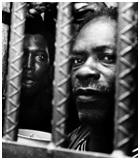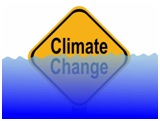|
 |
|
 |
|
|
||
Thomas Hobbes - Philosophy, Ethics and Government
Thomas Hobbes (1588-1679)
English philosopher (pictured right) whose selfish view of people has had a big influence on ethics and politics.
His most famous book is... Leviathan (1651).
What did he say about ethics and government? 1. Leviathan This godlike giant, based on the Old Testament character in the Bible, represents the absolute ruler (or dictator) like a king. Dictatorship is necessary to:
2. Survival of the fittest We are all:
This dog eat dog world is “the state of nature” in which life is: “Solitary, poor, nasty, brutish and short”. So we need:
3. The social contract Under this social contract, the people give a ruler (or Leviathan, see point 1) the power to keep the peace by force. Actions without force are useless. But the social contract doesn’t take away people’s right to self-defence.
Which two current philosophical ideas relate to Hobbes’ selfish view of man? 1. The prisoners’ dilemma Imagine you and your partner (Bill) have committed a crime together, and you both agree to keep quiet. You are questioned in separate police cells -
The prisoners’ dilemma is that it’s better for you and Bill to:
So, because of such benefits from selfishness, Hobbes supported the enforcing of people’s promises by force through the social contract (see point 3 above). 2. The problem of the commons This says that people will exploit something that is free (like air or common land), until it is no good for anyone. (for example, polluting the air and causing climate change).
Key quotes on society The life of man, solitary, poor, nasty, brutish and short. The condition of man... is a condition of war of everyone against everyone.
Key quote on business ethics Profit is the measure of right.
Key quote on law and justice Liberties...depend on the silence of the law. It is not wisdom but authority that makes a law.
Key quote on peace of mind There is no such thing as perpetual peace of mind...because life itself..can never be without desire, not without fear.
Key quote on learning and leisure Leisure is the mother of philosophy. |
|
|
||
|
|
||
| Copyright © wisdomtowin.com 2025 All Rights Reserved | ||
|








